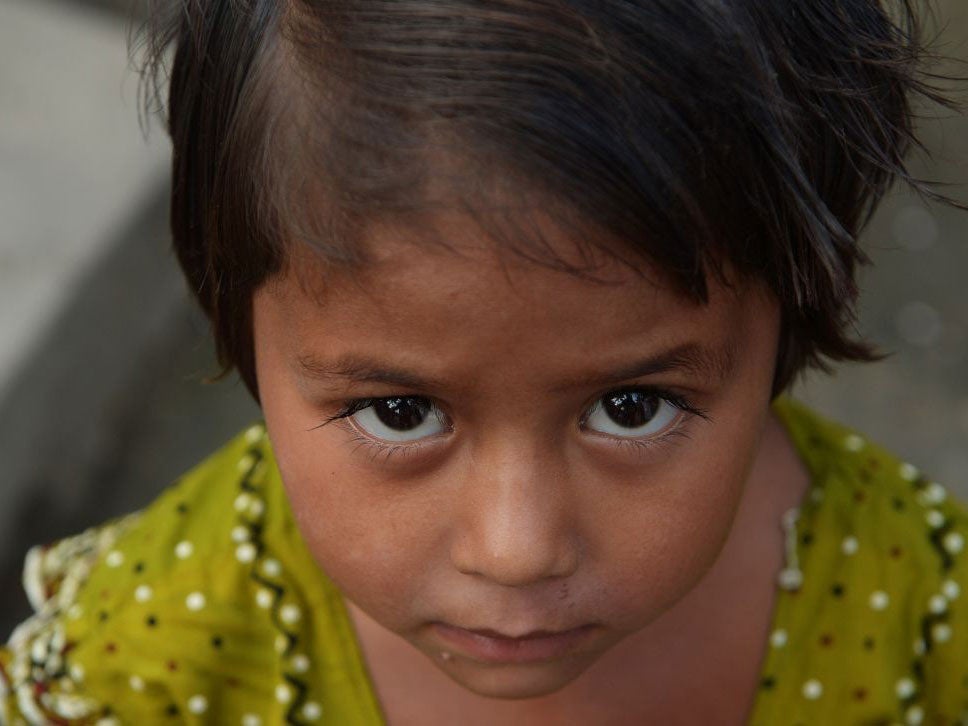India 'to be declared polio free' after three years free of the disease
World Health Organisation to make landmark declaration next month

Your support helps us to tell the story
From reproductive rights to climate change to Big Tech, The Independent is on the ground when the story is developing. Whether it's investigating the financials of Elon Musk's pro-Trump PAC or producing our latest documentary, 'The A Word', which shines a light on the American women fighting for reproductive rights, we know how important it is to parse out the facts from the messaging.
At such a critical moment in US history, we need reporters on the ground. Your donation allows us to keep sending journalists to speak to both sides of the story.
The Independent is trusted by Americans across the entire political spectrum. And unlike many other quality news outlets, we choose not to lock Americans out of our reporting and analysis with paywalls. We believe quality journalism should be available to everyone, paid for by those who can afford it.
Your support makes all the difference.India is on the verge of being declared polio free after no fresh cases of the condition were reported for a third consecutive year.
The World Health Organisation (WHO), which removed India from the list of polio-endemic nations in 2012, is expected to officially announce their status as a polio-free country next month.
India's health minister Ghulam Nabi Azad hailed the news as a "monumental milestone" for the country.
"This was possible due to unwavering political will at the highest level, commitment of adequate financial resources, technological innovation ... and the tireless efforts of millions of workers including more than 23 lakh (2.3 million) vaccinators," he told reporters.
Polio is a highly infectious viral disease that mainly affects children. It causes inflammation of motor neurons of the spinal cord and brain stem, leading to paralysis, muscular atrophy, and often deformity. Through vaccination, the disease is preventable.
It represents a remarkable achievement for India - once listed as the country with the most polio cases in the world. The number of people suffering from polio is now down to just one case, despite figures reaching as high as 150,000 in 1985.
The last child to be diagnosed with the disease in the country was four-year-old Rukhsar Khatun, who contracted polio in January 2011 when she was 18 months old. She had not been able to have vaccinations due to illness.
Her father Abdul Shah says that she leads a "normal life", but only after being given treatment by doctors in Calcutta. Now four years of age, Rukhsar cannot fully use her right leg and requires special shoes to enable her to walk.
"She can now stand on her feet and walk, but can't run. When her friends play, she remains a spectator," Shah said.
Although India is set to removed from the list of countries which are polio-endemic, Pakistan, Afghanistan and Nigeria remain on it as the virus continues to circulate throughout the three countries.
Cases were halved in Nigeria and decreased from 30 to 11 in Afghanistan, but Pakistan saw an increase from 58 in 2012 to 85 cases last year.
However, Dr Hamid Jafari, head of the Global Polio Eradication Initiative at the WHO, said that news of India's medical triumph will encourage other countries to take action.
He told The Telegraph: "If it can be done in India, it can be eradicated in any conditions. For any country not to succeed it is a lack of commitment, gaps in implementation and poor quality work.
"Once India came off the list of countries with active transmission in 2012, there was no technical rationale for this not to be done [elsewhere]."
Join our commenting forum
Join thought-provoking conversations, follow other Independent readers and see their replies
Comments